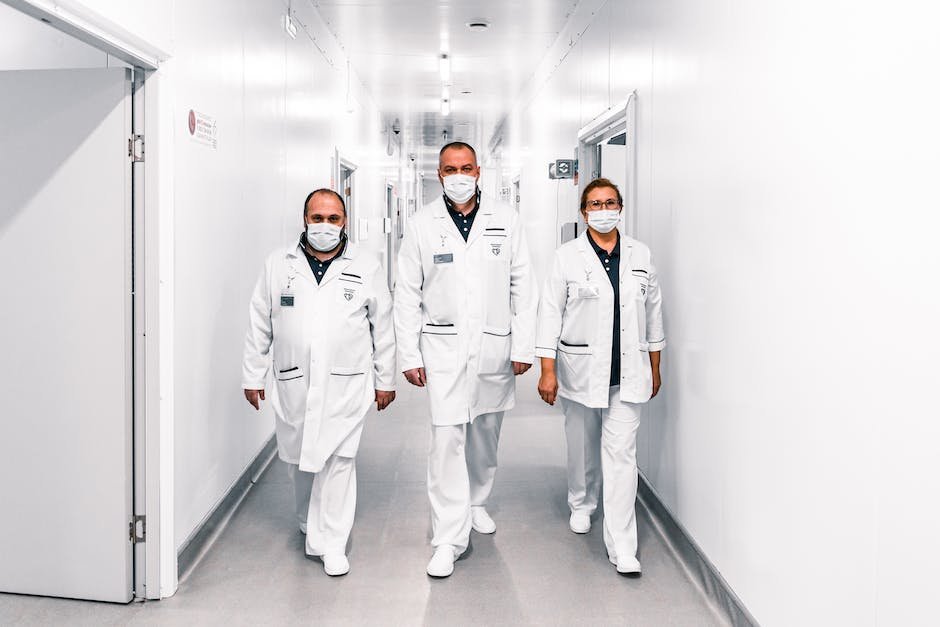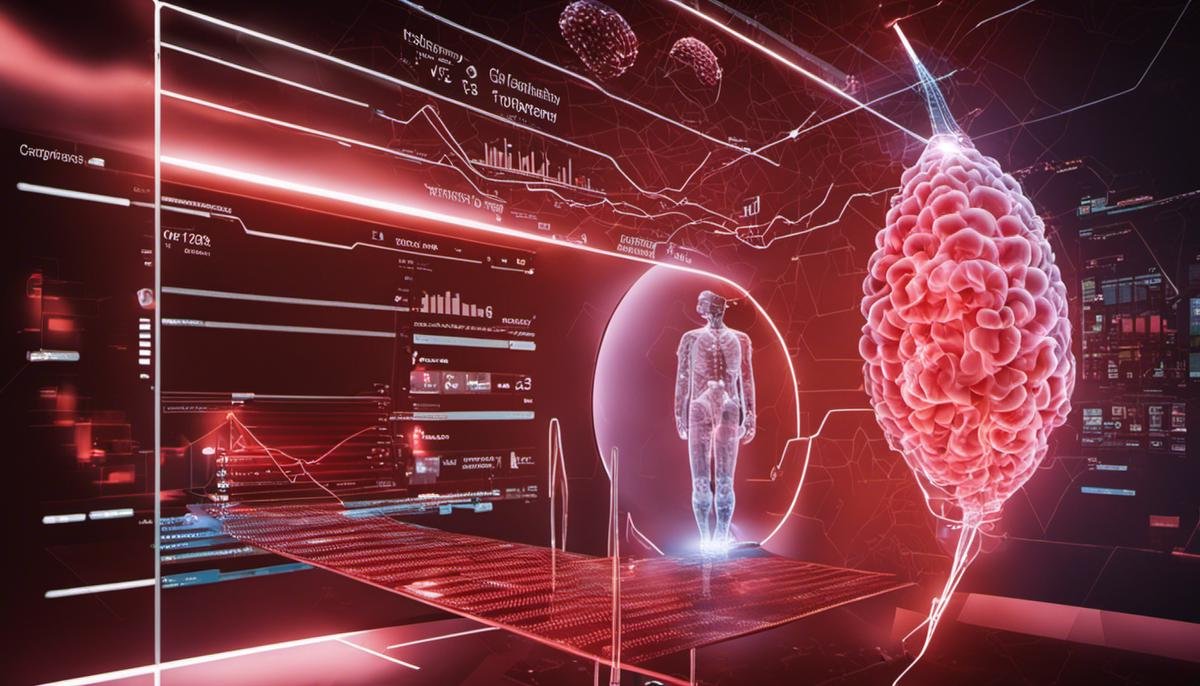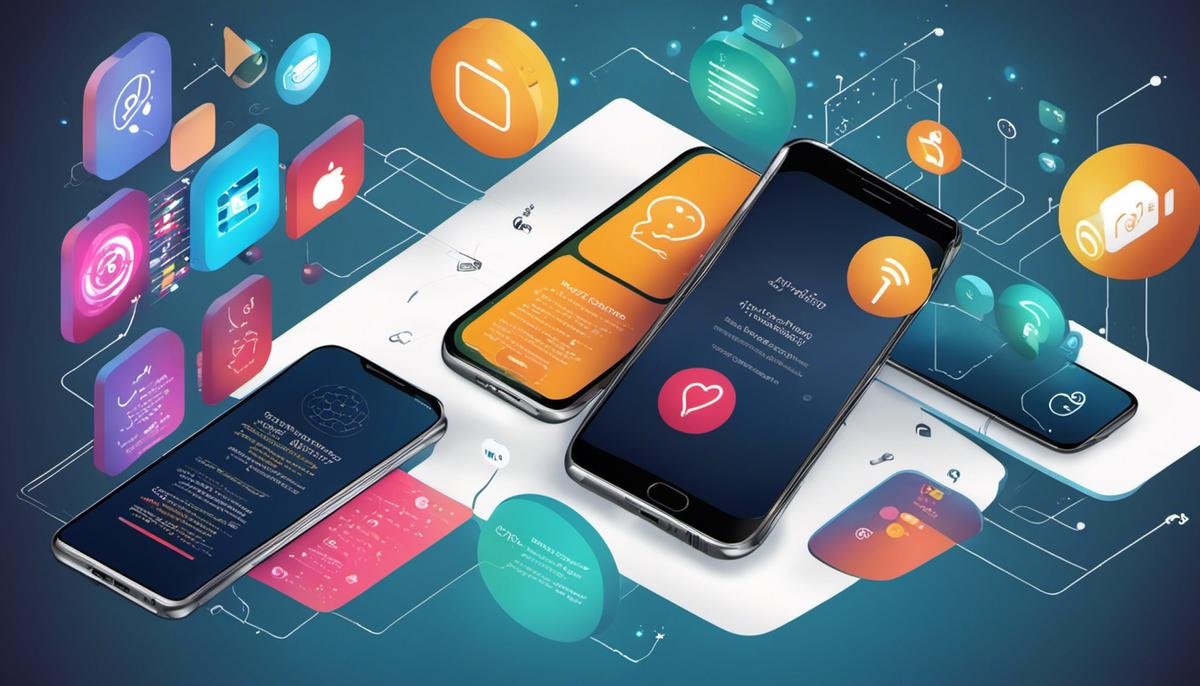As technology evolves and intertwines with human life, one of the sectors where it manifests prominently is healthcare. Artificial intelligence (AI), once the stuff of science fiction, has now permeated this critical field, transforming diagnosis, treatment, and even our understanding of human health. This exploration takes you through an illuminating journey into the world of AI in healthcare – its concept, various forms, its far-reaching benefits, and the inherent challenges. It delves into the quandaries arising from the marriage of advanced technology and healthcare delivery, while also peeping into the future to see what lies beyond the horizon.
What is AI in Healthcare?
What is AI in Healthcare?
Artificial Intelligence (AI) in healthcare is the use of algorithms and software to approximate human cognition in the analysis of complex medical data. The primary aim of health-related AI applications is to analyze relationships between prevention or treatment techniques and patient outcomes. AI programs have been developed and applied to practices such as diagnosis processes, treatment protocol development, drug development, personalized medicine, and patient monitoring and care.
Origin and Evolution of AI in Healthcare
The concept of AI originated in the mid-20th century. The development of electronic computers and the rise of computational power brought the idea of AI into reality. The evolution of AI in healthcare started in the 1970s when rule-based expert systems were introduced. DENDRAL, MYCIN, and CASNET were among the initial systems developed with an aim to diagnose diseases, suggest treatments, and predict molecular structures. By the 80s and 90s, Machine Learning (ML), a subset of AI, was starting to be utilized in healthcare, making systems smarter and data-driven.
Current Implementation of AI in Healthcare
Currently, AI is being utilized in various areas of healthcare. In imaging diagnostics, AI can help radiologists identify potential tumors in MRI scans, improve the reading of X-rays, and assist in spotting patterns in CT scans which may have been overlooked by the human eye. In predictive analytics, AI algorithms are being used to predict patient risks by analyzing large amounts of data from various sources.
In addition, AI is used in patient management, where applications using natural language processing can help in schedule management, treatment reminders, and maintaining a routine for patients. Moreover, AI is also helping researchers in drug discovery by identifying potential drug candidates and predicting their potential effectiveness and side effects.
AI in Personalized Medicine and Treatment
AI plays a vital role in personalized medicine. It can analyze a patient’s genetic makeup, lifestyle, and biometric data, and predict what treatment would be best for them. This can help in early diagnosis and intervention, which leads to improved outcomes and reduces healthcare costs. AI can also help in developing personalized treatment plans for complex diseases like cancer, where the treatment plan must be tailored to the individual’s specific genetic mutation.
Barriers and Challenges for AI in Healthcare
However, despite the promising advancements, AI in healthcare is still facing several challenges. These include data privacy and security concerns, the need for substantial investment, lack of standardization in data collection and interpretation, regulatory compliance issues, and the lack of skilled IT professionals in healthcare.
Healthcare providers also need to build trust and explainability for AI solutions. While AI has the potential to vastly improve healthcare, it is crucial that these technologies are transparent and their decisions are interpretable by clinicians, without sacrificing the level of accuracy.
Prospects of AI in Healthcare
The future presents a promising prospect for the implementation of AI in healthcare. Despite various challenges, there is tremendous potential for this technology to revolutionize the sector by offering optimized, efficient, and tailored healthcare management.

Different Forms of AI in Healthcare
Application of Machine Learning in Healthcare
Machine learning, a core attribute of artificial intelligence (AI), is a set of computational algorithms geared towards enhancing efficiency through data-centric forecasts and decision making. This science has taken an increasingly prominent role in healthcare, notably in the fields of disease diagnosis, prognosis, and customized treatment plans.
These advanced machine learning algorithms can process massive amounts of data. These include structured data such as lab findings, a patient’s age, or body mass index, along with unstructured data like doctor’s clinical notes. Using this wide-ranging data, predictive models can be built to forecast potential health hazards in patients. Technologies grounded on machine learning further aid diagnostic procedures by analyzing myriad medical images and recognizing patterns that may slip past the human eye.
One instance of such an application is a machine learning algorithm developed by Google. The technology has been specifically engineered to detect conditions such as diabetic retinopathy and macular edema from retinal fundus images. Another company, PathAI, has also developed a system to identify breast and prostate cancer cells.
Natural Language Processing
Natural Language Processing (NLP) is another domain under AI that focuses on the interaction between machines and humans using natural language. NLP has multiple applications in healthcare, including automatic transcription services, reading and comprehending patient records, deciphering clinical notes and, more recently, evaluating social media to identify health trends.
For instance, a tool named “BabelMeSH” has been developed to help non-English speaking physicians and researchers access English medical literature. It translates search queries into English and returns results that correspond well with the user’s terms.
AI chatbots are even developed with NLP capabilities to interact with patients, frequently used as a first point of contact to assess symptoms and advise on appropriate steps, thereby reducing the strain on healthcare systems.
Robotics
Robotics is another form of AI being used effectively in healthcare. In hospitals, AI robots are helping with mundane tasks like cleaning, food delivery, medication distribution, or directly engaging with patients for basic care.
In surgical procedures, robotics takes a more forefront role. For example, the da Vinci Surgical System, a robot-assisted surgery device, allows surgeons to perform complex procedures with more precision, flexibility, and control than traditional techniques.
Robotics technology is also being incorporated into devices like exoskeletons to assist physically-challenged patients and help them regain mobility. Such devices directly impact patient quality of life, demonstrating AI’s immense potential in healthcare.
AI’s Groundbreaking Impact on Healthcare
AI technology is spearheading a revolution in healthcare by automating routine tasks, providing pinpoint accuracy in surgical procedures, predicting diseases, and personalizing treatment plans. Its ability to process vast heaps of data at a speed beyond human capability is set to transform patient care significantly. Moreover, it offers actionable insights and allows healthcare professionals to concentrate more on dire tasks.
Nevertheless, it’s crucial to recognize that as of now, AI technology is an enhancement to human care rather than a complete substitute. The human touch and innate intuition still play a significant role in healthcare. With continuous research and development in the future, these AI technologies are poised to redefine the face of healthcare in yet unforeseen ways.
Benefits of AI in Healthcare
AI as a Game-Changer in Diagnostic Accuracy
Artificial Intelligence (AI) is steering a paradigm shift in the realm of diagnostic precision within healthcare. Machine Learning (ML), a branch of AI, stands out for its capability to process data and derive informed decisions. In the healthcare sector, Machine Learning algorithms serve as a powerful tool, analyzing extensive medical data sets and providing physicians with possible diagnosis recommendations.
Google’s DeepMind Health is one good example, where AI is employed to improve the diagnosis of eye diseases by scrutinizing retinal images. Also, AI algorithms are in the pipeline to read and interpret radiology images to detect anomalies such as tumors or fractures, which were once entirely dependent on a radiologist’s expertise. Research indicates that AI, thanks to its machine learning attributes, can drastically reduce human error, thereby enhancing the overall accuracy of diagnoses.
AI Improving Treatment Efficiency
Not only does AI improve diagnostic accuracy, but it also optimizes treatment plans. Some AI applications can process a patient’s detailed medical history, keep track of medications, and alert healthcare providers when a potentially dangerous combination of drugs is detected. AI can also help to identify the most effective treatment approach depending on the individual patient’s case. Furthermore, AI has the potential to monitor patients in real-time and adjust treatments accordingly to improve outcomes.
For instance, data-driven AI models are capable of personalizing radiation therapy use for cancer patients. Another notable application is IBM Watson’s capacity to propose individualized leukemia treatments by analyzing a patient’s genetic makeup and medical history.
Predicting Patient Trends Using AI
AI is taking healthcare one step ahead by predicting potential health issues. Predictive analytics, a branch of AI, allows healthcare professionals to identify patients at risk of chronic diseases before they show symptoms. It can do so by analyzing various data points, including patient health records, health habits, and genetic information.
Additionally, these sophisticated technologies can anticipate disease outbreaks and predict patient volume in hospitals, which can guide workforce allocation and help to streamline healthcare delivery. This has been extraordinarily helpful during crises like the COVID-19 pandemic where AI has played a significant part in tracking disease progression and planning resource deployment accordingly.
Boosting Healthcare Efficiency with AI
By automating routine tasks such as patient scheduling, medication tracking, and follow-up reminders, AI significantly reduces the workload on healthcare staff, thus, allowing them to dedicate more time to patient care. The technology also improves the efficiency of administrative tasks such as billing, record keeping, and insurance processing.
In the course of drug discovery, AI can minimize the time taken from conceptualization to market introduction. By analyzing vast amounts of data, AI can identify potential drug candidates and predict their effectiveness and safety, thus reducing both the cost and the timeline of the traditional drug discovery process. AI can also augment clinical trial processes by identifying suitable candidates, thereby, accelerating the clinical trial process.
The Incredible Potential of AI in Healthcare
Artificial Intelligence (AI), with its capacity to process extensive data and make precise predictions, holds immense potential in the healthcare landscape. Its applicability spans across improving diagnostic accuracy, boosting treatment effectiveness, predicting health trends, and optimizing the overall efficiency in healthcare delivery.

Challenges & Ethical Issues in AI in Healthcare
Navigating Data Security in Healthcare AI
However, there’s a pivotal concern in the integration of AI into healthcare – data security. In dealing with vast quantities of sensitive data, including patient records, disease histories, and genetic information, it’s pivotal for AI systems to safeguard this information against potential breaches or leaks. Such incidents can lead to privacy violations and personal as well as financial distress for the affected patients. Despite strides in encryption and cybersecurity offering a measure of protection, ensuring the confidentiality, integrity, and accessibility of healthcare data in the era of AI predominance remains a paramount focus.
Trust and Transparency in AI-powered Healthcare
One issue hindering the adoption of AI in healthcare is a lack of trust and transparency. Machine learning models – the engine driving AI – are often complex and not easily understood, even by healthcare professionals utilizing them. This “black box” phenomenon can lead to mistrust, especially when system outputs impact critical areas like patient diagnosis and treatment. There’s a need for greater transparency in AI algorithms to ensure physicians and patients understand and trust the decisions and recommendations they produce.
Ethical Considerations with AI in Healthcare
Healthcare involves making decisions that significantly impact patients’ lives. Therefore, ethical considerations are paramount when integrating AI into this sector. Essential concerns revolve around patient consent for data use, patients’ understanding of AI decisions, and who holds the responsibility when AI makes a mistake that harms a patient. For AI tools to adhere to medical standards and ethics, regulatory frameworks and guidelines need to evolve alongside these technological advancements.
Addressing Biases in AI Algorithms
Another challenge in AI implementation in healthcare is the risk of bias in AI algorithms. Bias can occur if the data used to train machine learning models is not representative of all patient populations. For instance, if an AI system is primarily trained using data from adult males, its ability to diagnose diseases in women or children may be compromised. Consequently, AI systems need to be trained with diverse datasets and be regularly audited for potential biases to ensure equal and fair services for all patient demographics.
Limitations and Risks in AI Decision-making
The impact of AI in healthcare extends to decision-making processes. While AI can process large amounts of data quickly, it’s predominantly confined to patterns and may overlook non-obvious or non-linear patient variables. This limitation can lead to misdiagnoses or incorrect treatment recommendations, demonstrating that AI’s decision-making capabilities cannot fully replace human judgment. Physicians must continuously oversee and monitor AI applications to mitigate these risks.
Understanding the Challenges with AI and Healthcare
Artificial Intelligence (AI) promises to significantly transform the healthcare industry, but it comes with a hefty price tag and a certain level of complexity. Heightened costs are not only associated with the development, procurement, and upkeep of AI technology, but also stem from the need to incorporate these systems into prevailing infrastructures. Furthermore, the necessity to train medical staff to appropriately utilize AI technology contributes to an increase in both cost and time requirements. Clearly, a multitude of obstacles remain that must be addressed before healthcare can fully reap the benefits of AI’s revolutionary potential.

Future of AI in Healthcare
The Impact of AI Integration in Healthcare
AI technology, encompassing capabilities such as machine learning, data analytics, and robotics, offers improved diagnosis and treatment options, better patient care, and enhanced possibilities for research within the healthcare sector. The integration of these advanced technologies catalyzes superior clinical decision-making processes, augments patient outcomes, and curbs the escalating costs associated with healthcare services. Thus, both current and future healthcare settings stand to gain significantly from the progressive contributions of AI.
Emerging AI Technologies in Healthcare
Upcoming AI technologies poised to shape the healthcare sector include virtual health assistants, predictive analytics tools, and advanced robotic systems. Virtual health assistants, such as advanced chatbots and telemedicine platforms, can provide patients with on-demand healthcare guidance, thereby increasing access to healthcare services. Predictive analytics tools use machine learning algorithms to analyze vast amounts of healthcare data and predict future health events with high accuracy, enabling early intervention. Advanced robotic systems can perform complex surgeries with precision and control not possible for human surgeons, increasing the success rate of surgeries and reducing recovery times.
Potential Advancements in AI in Healthcare
The potential advancements in AI in healthcare are varied and vast. Improved data analytics could enable personalized medicine, where treatment plans are tailored to each person’s unique genetic makeup and health history. This could dramatically improve the effectiveness of treatments and reduce the risk of adverse reactions.
AI could also further evolve to tackle complex medical tasks. Research is underway on AI systems capable of reading and interpreting medical images, potentially speeding up diagnoses and freeing up valuable time for clinicians.
Furthermore, AI has the potential to revolutionize pharmaceutical research by speeding up the discovery of new drugs. This could significantly shorten the time it takes to bring new treatments to market, benefiting patients suffering from conditions that currently lack effective treatments.
Potential Impacts of AI on the Healthcare Sector
The expansion of AI into healthcare could reshape the sector in several ways. One significant impact could be on healthcare costs. By automating routine tasks, AI has the potential to reduce the demand for healthcare workers, resulting in cost savings.
Moreover, AI can contribute to making healthcare more patient-centered. AI-driven predictive models could enable doctors to predict a patient’s health trajectory and offer proactive care, resulting in better patient outcomes.
However, the integration of AI into healthcare also presents challenges, such as privacy concerns and potential job loss among healthcare workers. It will be important to address these challenges to ensure that the benefits of AI in healthcare are realized for all.
Overall, the potential for AI to improve healthcare is immense. While the journey to fully integrated AI healthcare is long, the advancements made so far indicate a promising and transformative future for healthcare.

Photo by mykjohnson on Unsplash
While the challenges foregrounded may seem daunting, the future still holds boundless promise for AI in healthcare. We are already witnessing technological leaps in machine learning, robotics, and language processing, that are progressively reshaping diagnoses, treatment, prediction, and data analysis. As these technologies mature and integrate more seamlessly into healthcare, we’ll stand at the cusp of medical revolutions we can only begin to imagine. Beyond doubt, as we thread through the labyrinth of ethical and logistical obstacles, the end prize could be a healthier world with improved medical outcomes for all of us.


